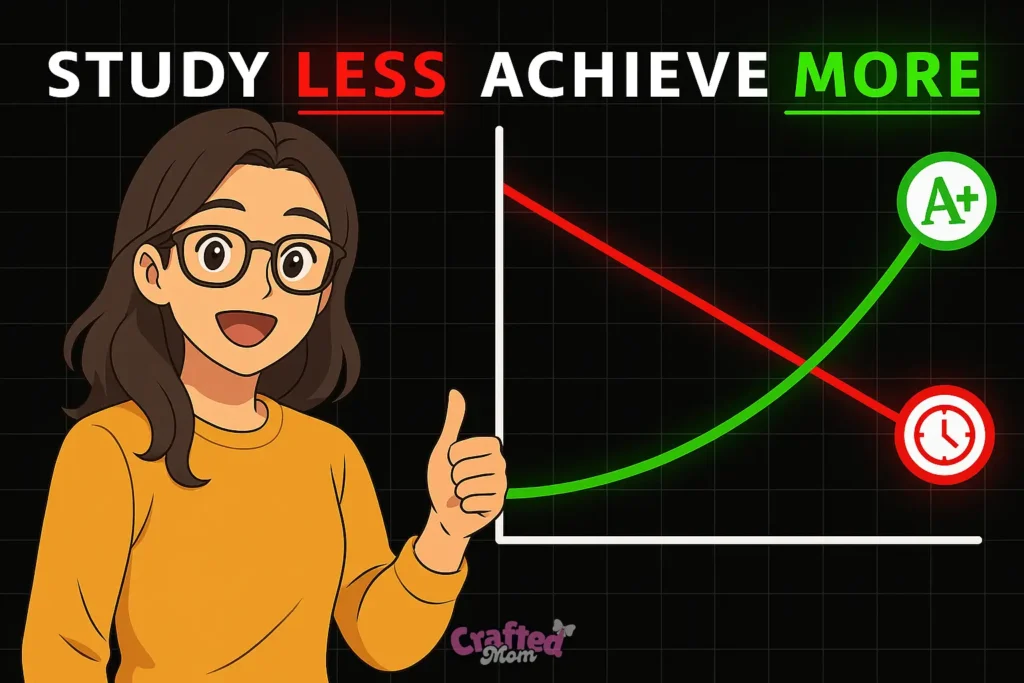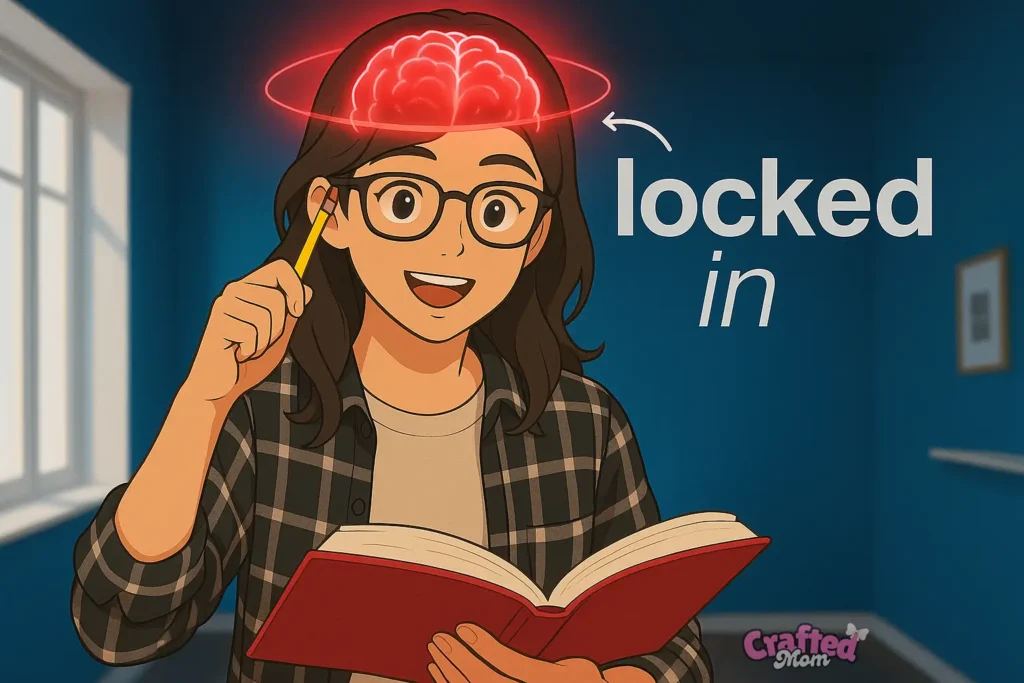How to Remember Everything You Read starts with changing how you engage with information. Let’s face it, most of us read tons of content but forget it quickly. That’s because we focus too much on consuming information without taking the time to truly digest, reflect, and internalize what we’ve learned.
How to Remember Everything You Read
Real learning happens when you actively engage with what you read and break it down into manageable steps. That’s exactly what the PACER system is designed for: a practical method to improve your retention and recall, so you remember everything you read, not just a fraction.
The Two Stages of Learning

1. Consumption Stage
This is the part everyone is good at, the reading, watching, or listening phase. You grab a book, a podcast, or a YouTube video and feel super productive because you are “learning.” But if you are not careful, this is where How to Remember Everything You Read quietly falls apart.
Most of us stay stuck in this stage, we highlight, we nod along, we tell ourselves we will “remember that later,” and then, poof, it is gone by tomorrow.
Here is what usually happens in the consumption stage:
- You passively read, watch, or listen without stopping to think.
- You highlight or underline but never look at those notes again.
- You keep turning pages even when your mind is already drifting.
- You mistake feeling inspired for actually having learned something.
- You rarely pause to summarize what you just read in your own words.
2. Digestion Stage
This is the part almost nobody teaches you, but it is where the real magic happens. Digestion is when your brain actually processes what you read and files it into long term memory. It is the difference between “oh yeah, I saw that once” and “I can actually use this in real life.”
In How to Remember Everything You Read, this stage is non negotiable. If you skip it, the info just floats around and disappears.
Here is what the digestion stage usually looks like:
- You pause after a chapter and summarize the main idea in your own words.
- You write down key points in a notebook instead of just highlighting them.
- You ask yourself, “How can I use this in my life, work, or parenting?”.
- You connect new ideas to something you already know, like linking puzzle pieces.
- You explain the concept out loud to someone else, or pretend you are teaching it.
This is how reading turns into remembering, and remembering turns into actual skills.
Key Insight: More input doesn’t mean more output. To truly remember what you read, you need to balance both consumption and digestion stages.
Can You Really Remember Everything?
Let’s be honest, none of us are about to remember every single thing we ever read, and thankfully, we do not need to. The real goal of How to Remember Everything You Read is to hang on to the stuff that actually helps you think better, make decisions, and solve real life problems.
A few things to keep in mind:
- You are not trying to be a walking Google, you are trying to build a useful brain library you can actually use
- Remembering the right 10 percent really well usually beats remembering 100 percent in a shallow way
Kim Peek, the real life inspiration for Rain Man, reportedly memorized the contents of around 12,000 books and could recall details instantly, but still struggled with big picture thinking and everyday functioning. Wikipedia+1
That is your reminder that raw memory is not the finish line, understanding and applying what you remember is where the real power is.
The PACER System: 5 Types of Information & How to Retain Them

1. Procedural: “How-To” Knowledge
This type of information focuses on how to do things, like medical procedures, programming syntax, or language grammar rules.
- Examples:
- Performing CPR
- Writing code
- Using verb tenses correctly
- Best Strategy: Practice immediately after learning. Hands-on repetition is key to solidifying procedural knowledge.
- Don’t just memorize steps, if you don’t apply what you learn, you’re likely to forget it quickly.
2. Analogous: Connecting New Info to Prior Knowledge
Analogous information means using familiar ideas or experiences to make sense of new, complex concepts.
- Examples:
- Understanding electrical circuits by comparing them to water flowing through pipes.
- Relating economic principles to everyday buying and selling.
- Best Strategy: Critique the analogy by asking:
- How are these ideas really similar?
- Where does the analogy fall short or break down?
- Can you create a better or clearer analogy yourself?
This active analysis helps deepen understanding and improves long-term retention.
3. Conceptual: Understanding Principles and Relationships
Conceptual information covers theories, explanations, and big-picture ideas in subjects like science, history, and more.
- Examples:
- The theory of evolution
- Causes of World War II
- The principles of supply and demand
- Best Strategy: Use Mind Mapping or Concept Mapping to:
- Build a visual network of ideas that makes complex information easier to grasp.
- Show how concepts relate to one another clearly.
- Incorporate analogies to deepen understanding and make the material stick.
Visualizing relationships turns abstract concepts into tangible knowledge you can recall more easily.
4. Evidence: Supporting Details, Data, Examples
Evidence includes the facts, statistics, case studies, and citations that back up ideas and arguments.
- Examples:
- Statistical data in research papers
- Real-world case studies
- Credible citations supporting claims
- Best Strategy:
- Store and rehearse your evidence by adding it to a reliable second brain system like Notion, Obsidian, or Evernote.
- Use this information actively when solving problems or writing essays to strengthen your work.
- Revisit your stored evidence regularly to keep it fresh and ready to deploy.
This organized approach helps you recall and apply evidence precisely when it matters most.
5. Reference: Isolated Facts You Might Need Later
Reference information consists of isolated facts, constants, vocabulary, gene names, formulas, and other details you may need on demand.
- Examples:
- Mathematical constants like π (pi)
- Scientific vocabulary or terminology
- Specific gene names or chemical formulas
- Best Strategy: Use flashcards combined with spaced repetition to boost recognition and quick recall. Tools like Anki or Quizlet work great for this.
- Don’t waste time trying to deeply analyze or overthink these facts during your initial reading. Focus on fast, efficient memorization instead.
Why Balancing Consumption and Digestion Matters

- Consuming too much without digesting leads to mental overload and forgetfulness, think of it as “mental bloating.”
- Digestion is a slower process but absolutely critical for turning information into lasting knowledge.
- By focusing more on digestion, you save time and effort down the line, avoiding the need to constantly re-learn forgotten material.
Final Tips for Effective Studying with the PACER System
Match Info Type to the Right Study Strategy
One big secret in How to Remember Everything You Read is realizing that not all information is built the same. If you treat every book, lesson, or article the same way, your brain is going to check out fast. Instead, I like to pause and ask myself, “Okay, what kind of info is this?”
Here is how I match the type of information to the way I study it:
- Procedural info
Things like recipes, math methods, or step by step systems.
👉 Best strategy, practice and repetition, do the steps yourself, not just read them - Conceptual info
Big ideas, principles, or frameworks.
👉 Best strategy, mind maps, summaries, and teaching it out loud in your own words - Reference info
Dates, formulas, definitions, or lists.
👉 Best strategy, flashcards, spaced repetition apps, and quick review sessions over time
Avoid Passive Reading
You know that feeling when you finish a page and think, “Wait, what did I just read?” Yep, that is passive reading, and it is one of the biggest enemies in How to Remember Everything You Read. Your eyes are moving, but your brain is basically on airplane mode.
Instead, I try to stay “awake” while I read by doing things like:
- Asking myself, “Do I agree with this, why or why not?”.
- Jotting quick notes or doodling little mind maps in the margins.
- Pausing every few pages to rehearse the main points out loud.
- Underlining only what I plan to actually review later, not every sentence.
- Writing one or two takeaway sentences at the end of each chapter in my own words.
Build a Long-Term Learning Framework
PACER is amazing, but it is not the whole story. If you really want How to Remember Everything You Read to work long term, you need a system that keeps showing up after the book is closed. Think of PACER as the “how,” and your learning framework as the “lifestyle” that supports it.
Here is what that can look like in real life:
- Use spaced repetition a few times a week, review old ideas just as often as new ones.
- Practice active recall, close the book and try to write or say what you remember without looking.
- Set up a simple “second brain” in Notion, Anki, or even a paper notebook for key ideas.
- Schedule tiny review sessions, 10 to 15 minutes a day instead of marathon cram sessions.
- Once a month, scan your notes and ask, “What here is actually useful to my life right now?”.
Conclusion: Become an Intentional Learner

Remember, the goal isn’t to remember everything, it’s to understand and apply what truly matters. The PACER system helps you focus your energy on retaining useful knowledge and ditching inefficient study habits.
Start today: the next time you read or study, label the information using PACER and apply the right method for maximum retention and impact.
Frequently Asked Questions:
What’s the best way to remember everything you read?
Use active recall and spaced repetition, don’t just read, quiz yourself and review regularly.
Does highlighting or re-reading help with memory?
Not really. Passive techniques like highlighting are less effective than summarizing or teaching what you learned.
How can I stay focused while reading?
Eliminate distractions, set a clear intention, and break reading into short, focused sessions with pauses to reflect.

